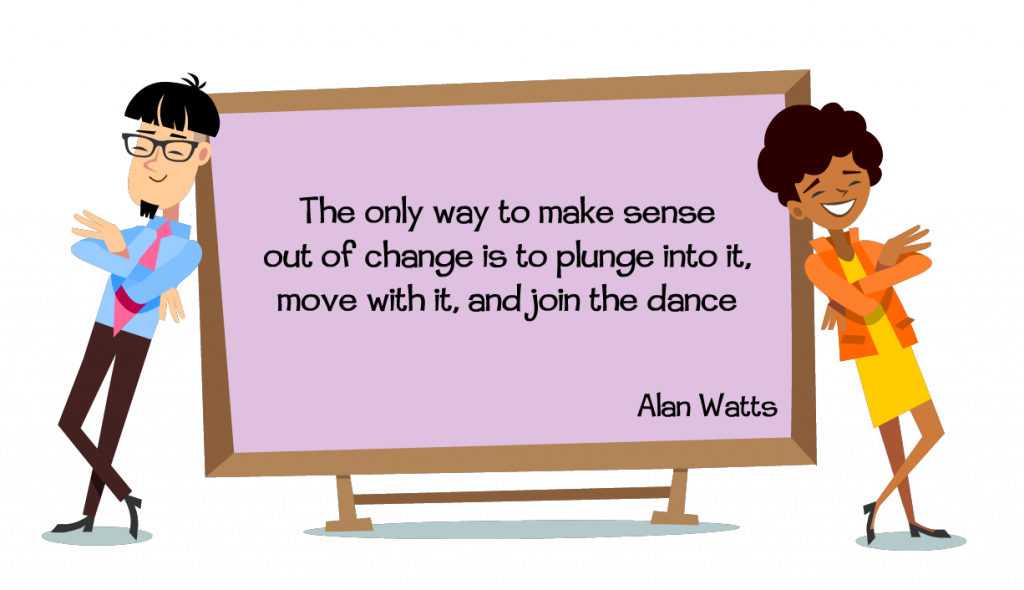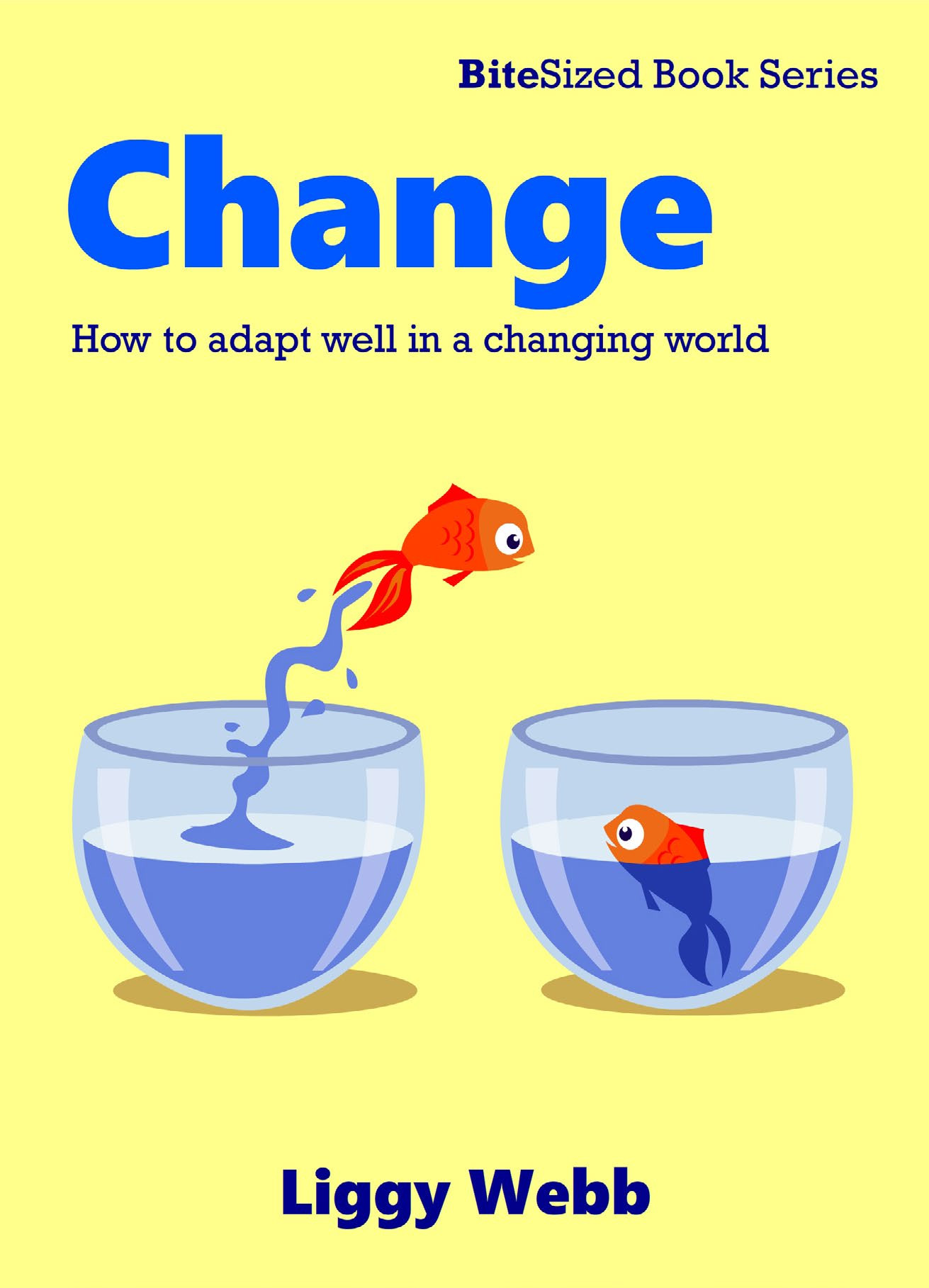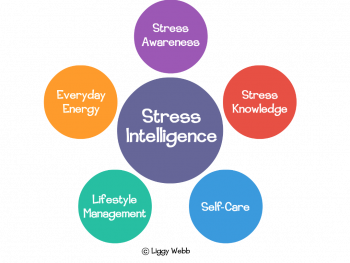The world is changing rapidly, and the escalating pace of change is far greater today than it has ever been. Not only do we have the experience of living through the chaos of a global pandemic, but we are also living against the backdrop of the fourth industrial revolution.
Our ability to learn something new, unlearn it when circumstances change, and relearn something new when appropriate will help us to adapt and stay fresh and relevant. This will also help us to be better prepared for whatever curveballs life may throw our way. Taking time to compose ourselves and consider all the information we have and the options that are available will help us to respond to the changes ahead in a more composed and confident way.
Here are 7 ways to deal well with change…

1. Embrace change
When we feel that change is being inflicted on us, it can be a natural human reaction to resist it and even attempt to avoid it. The best use of our valuable energy is to accept a change we can do nothing about, own it and explore ways that we can positively influence our change in circumstance.
Making a conscious decision to be positive, open- minded and curious will help us to deal with some of the more negative aspects and accept change that we have no control over. It is also worth bearing in mind that sometimes some of the greatest adventures we experience in our life will be outside our comfort zone.
2. Understand your emotions
When we experience change in our lives it can be an emotional rollercoaster and we may feel concerned, angry, resentful, and fearful. We could even find ourselves resisting change we don’t want to happen actively or even passively. If there is a lot of change going on we may even experience change fatigue and feel depleted of energy and depressed.
These feelings may well come in waves and are perfectly natural for us all as human beings. It may also help to express our feelings and concerns, and even vent our frustration in the most constructive way by actively seeking out the positives in each situation.

3. Be curious
Keeping an open mind and being curious about our changing situation can be useful. Being curious rather than judgmental will also help us to see things from all angles, as well as helping to diffuse any anxiety we could potentially experience. Asking questions and listening rather than making assumptions will help us to explore fresh perspectives and provide valuable insights that we may well have missed. It will also help us to explore the opportunity to learn more about ourselves and our own potential through change.

4. Control the controllables
When there is a lot of change going on in our lives, we could find it overwhelming, and we may even begin to feel out of control which can be unnerving. This is when we need to remind ourselves about what we are in control of and focus on ‘controlling the controllables’. By turning our focus towards the things that we can change, rather than those we can’t, will help us to feel calmer and less stressed.
Taking some time to make a list of what those things are will help us to create more clarity. It is also important to remember that we are always in control of the way we respond in every given situation.
5. Avoid catastrophising
Sometimes a fertile imagination can be our own worst enemy. If we are not careful, we may take out our imaginary crystal ball and start to “catastrophise” about the future. The what ifs and speculation can lead to feelings of despair and those feelings can lead to more speculation and then we become lost and paralysed in an overwhelming whirlpool of fear. Being able to detach from our situation and consciously observe our emotions will help us to gently guide ourselves into a calmer and more positive space. We cannot possibly predict the future and fuelling the potential drama that your mind can create about something that may well never happen is simply not the best use of our emotional energy.
6. Get some support
If we are struggling and finding it hard to deal with a change we are going through, then it can be helpful to reach out and get some help. A supportive family member, friend or work colleague may be the very best tonic and even just getting something off our chest can help to diffuse the anxiety we may be feeling.
Talking something through can also help us to explore another perspective and see things in a completely different way. It may also be that someone you speak to has been through something similar and may offer some useful insights and advice. We never need to feel alone, and we are all just trying to find our way so a feeling of connectivity can be very reassuring.

7. Chunk up change
When we are adapting to a big change, where possible, breaking it into smaller chunks is helpful. By taking one small step at a time, we will feel less overwhelmed and potentially immobilised by the enormity of the change we are facing.
By concentrating on the step we have reached, rather than the bigger picture, can help us to keep moving forward. It is worth remembering that small, yet significant improvements can lead to monumental results over time.

Change
For updates for future blogs, free webinars and various other useful resources please do join my newsletter.














 Are you experiencing a bit of FOGO?
Are you experiencing a bit of FOGO?


